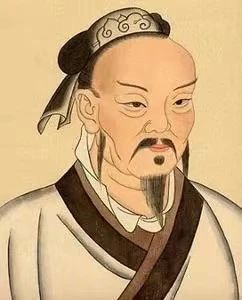
梁惠王曰:“晋国[1],天下莫强焉,叟之所知也。及寡人之身,东败于齐,长子死焉;西丧地于秦七百里;南辱于楚。寡人耻之,愿比死者一洒之[2],如之何则可?”
孟子对曰:“地方百里而可以王。王如施仁政于民,省刑罚,薄税敛,深耕易耨[3],壮者以暇日修其孝悌忠信,入以事其父兄,出以事其长上,可使制梃以挞秦、楚之坚甲利兵矣。“彼夺其民时,使不得耕耨以养其父母,父母冻饿,兄弟妻子离散。彼陷溺其民,王往而征之,夫谁王敌?故曰:‘仁者无敌。’王请勿疑!”King Hui of Liang said, “There was not in the nation a stronger state than Jin, as you, venerable sir, know. But since it descended to me, on the east we have been defeated by Qi, and then my eldest son perished; on the west we have lost seven hundred li of territory to Qin; and on the south we have sustained disgrace at the hands of Chu. I have brought shame on my departed predecessors, and wish on their account to wipe it away, once for all. What course is to be pursued to accomplish this?”Mencius replied, “With a territory which is only a hundred li square, it is possible to attain to the royal dignity. If Your Majesty will indeed dispense a benevolent government to the people, being sparing in the use of punishments and fines, and making the taxes and levies light, so causing that the fields shall be ploughed deep, and the weeding of them be carefully attended to, and that the strong-bodied, during their days of leisure, shall cultivate their filial piety, fraternal respectfulness, sincerity, and truthfulness, serving thereby, at home, their fathers and elder brothers, and, abroad, their elders and superiors, —you will then have a people who can be employed, with sticks which they have prepared, to oppose the strong mail and sharp weapons of the troops of Qin and Chu.The rulers of those states rob their people of their time, so that they cannot plough and weed their fields, in order to support their parents. Their parents suffer from cold and hunger. Brothers, wives, and children are separated and scattered abroad. Those rulers, as it were, drive their people into pitfalls, or drown them. Your Majesty will go to punish them. In such a case, who will oppose Your Majesty? In accordance with this is the saying, ‘The benevolent has no enemy.’ I beg Your Majesty not to doubt what I say.”【注释】[1]晋国:指魏国。三家分晋而有魏国。[2]比:替,代。一:副词,全,都。洒:洗。[3]易:疾速。耨:一种碎土、平整土地的农具,相当于“耢”(荆条编的整平土地的农具)。土地耕起后,马上用耨碎土、平整。【译文】梁惠王说:“晋国的强大,当时天下没有哪个国家能赶得上,这是老先生您知道的。可是到了我这时候,东边被齐国打败,连我的大儿子都死了;西边丧失了七百里的土地给秦国;南边又受楚国的凌辱。我为这些事感到非常羞耻,希望替所有的死难者报仇雪恨,我要怎样做才可以呢?”孟子回答说:“只要有方圆一百里的土地就可以使天下归服。大王如果对老百姓施行仁政,减免刑罚,少收赋税,深耕细作,及时平整土地;让身强力壮的人抽出时间修养孝顺、尊敬、忠诚、守信的品德,在家侍奉父母兄长,出门尊敬长辈上级,这样就是让他们制作木棒也可以打击那些拥有坚实盔甲和锐利刀枪的秦、楚军队了。“他们(秦国、楚国)的执政者剥夺了老百姓的生产时间,使百姓不能够靠深耕细作来赡养父母,父母受冻挨饿,兄、弟、妻、子东离西散。他们使老百姓陷入深渊之中,大王去征伐他们,有谁来和您抵抗呢?所以说:‘施行仁政的人是无敌的。’大王请不要怀疑!”【解读】本章响亮地提出光耀千古的思想“仁者无敌”。梁惠王对自己所受的耻辱耿耿于怀,所以虚心求教孟子,以求能够洗刷耻辱。孟子则因势利导,使梁惠王认识到,只有施行仁政,教化百姓懂礼法,明是非,心怀仁,使国人皆有正义感;之后再去讨伐暴虐的诸侯国,则无往而不胜,故“仁者无敌”。当然,孟子的这种朴素的仁政思想,带有理想化的色彩,在靠武力征伐来赢得胜利、兼并诸侯的战国时代,甚至显得有些迂腐,却如洪钟大吕般道出了国家强大的真正秘密:民心向背决定了国家的兴衰。只有心想百姓,“省刑罚,薄税敛,深耕易耨”,使百姓过上美好的生活,并且对百姓进行教育,使百姓知礼节,才能得到百姓的拥护,国家才会有自信,这就是“仁者无敌”的力量。真正的力量来自人民的拥护。